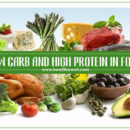Consume Vitamins To Keep Healthy Heart
A lack of certain vitamins can lead to fatigue, poor skin, teeth and bones and in some cases of severe deficiency, it can lead to serious illness. Vitamins interact with other nutrients in processes such as metabolism, digestion and developing blood cells and some vitamins are said to slow down the ageing process, prevent cancerous cells attacking the body and strengthen the immune system.
There are 13 different vitamins that can be divided into two categories: fat-soluble and water-soluble.
- Vitamins A, D, E and K are fat-soluble vitamins which are absorbed from dietary fats in the intestine and are then stored in the liver until needed. This means that they do not have to be consumed every day. Water-soluble vitamins on the other hand, need to be consumed from foods every day, as any excess vitamins are lost through urine and cannot be stored in the body.
- Water-soluble vitamins play an important part in the break down, metabolism and digestion of protein, fats and carbohydrates and the subsequent release of energy into the body and without an adequate supply of these vitamins, these processes may not be properly completed. Many vitamins are found in fruit and vegetables. Ideally, these food sources should be eaten raw, as vitamins can be lost or partially lost through the cooking process.
Take care in choosing vitamins and supplements to fight cholesterol and help your heart. Vitamins are required in the daily diet to nourish the heart with their benefits and to reduce the cholesterol and triglyceride levels in the blood which damage the heart arteries and ultimately the heart too. Certain vitamins are specially recommended by the medical fraternity to maintain a healthy heart.
However, just as the right amount of vitamins is essential for good health, the intake of too many vitamins can also be harmful. Below is a guide to each vitamin, which includes in which foods they can be found, their function in the body and how the body is affected by a deficiency of that vitamin.
Vitamin B6
High levels of blood hymocysteine can lead to the heart disease. Vitamin B6 helps to metabolize the hymosteine into the harmless amino acids cysteine. This helps the body to control growth and supports the tissue formation. Vitamin B6 can be found in fortified cereals, beans and meat.

Vitamin E
Vitamin E aids in heart health because it acts as an antioxidant in the body. Vitamin E helps prevents blood clotting and artery damage. Foods that contain vitamin E include nuts, seeds and vegetable oil.

Vitamin C
Vitamin C can prevent heart disease because it can prevent damage to the arteries by helping build collagen. This vitamin works with vitamin E to keep blood vessels healthy and increase good cholesterol. Eat fruits like papaya, oranges and strawberries delivers a good source of vitamin C to your body.





